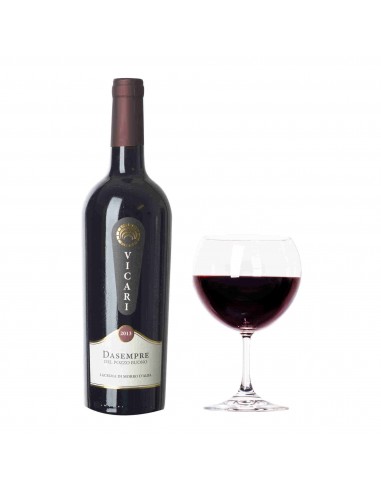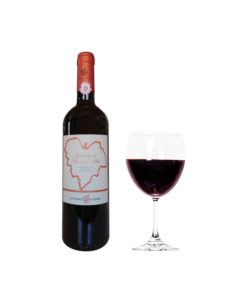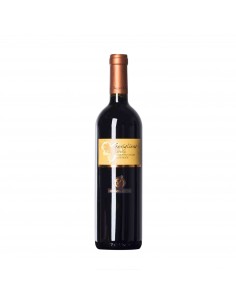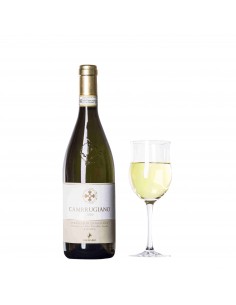Lacrima Da Sempre del Pozzo Buono
The ruby red colour that gives the native grape Lacrima di Morro D'Alba is unmatched and the succession of flavours made of fruity aromas, in which violets and woodland fruits blend in absolute harmony, capture the senses. This Lacrima Dasempre del Pozzo Buono is extremely pleasant, balanced and intense; it pairs perfectly with aromatic dishes, game, grilled red meats, pasta dishes tossed with strong sauces.
Type: Lacrima di Morro D'Alba Doc
Producer: Azienda Agricola Vicari
Made in: Italia
Alchol Content %: 13.5% vol
This product is made exclusively from native grape "Lacrima di Morro D'Alba," which, thanks to a careful thinning of the grapes, a meticulous manual collection in boxes associated with specific processes, in which the most modern techniques are alternated with traditional ones, is able to express the undeniable power of its aromas. Recommended to serve at a temperature of 16 ° -18 ° C.
Azienda Agricoa Vicari ss. Morro d'Alba (AN). Since 1800, the Vicari family has been leading one of the most important farms of the Marche in the village of Morro d' Alba. The company takes care of the vine, the grape harvest and winemaking, following personally with dedication and wisdom, all the way of the grapes, from the ripening to the harvest, until the final product. The company produces the following labels: Lacrima di Morro d’Alba Superiore, Lacrima di Morro d’Alba Essenza del Pozzo Buono, Lacrima di Morro d’Alba il Rustico del Pozzo Buono, Verdicchio dei Castelli di Jesi Classico, Rosso Piceno (Montepulciano and Sangiovese blend) and Vino di Visciole.
Wine made from Lacrima di Morro d'Alba grapes. It contains sulfites
General Information: Choosing the right wine is linked to the dish to which it accompanies. In general, red wines match best with all red meats and game, to meat based pasta dishes, fermented cheese, aged cheeses and spicy cheeses. How to drink: Each wine must be brought to the table at the proper temperature; the white and rose wines should be served at a temperature lower than the red ones to exalt the organoleptic properties of wine that would be altered if the service temperature is not the proper one. All the wine goes oxygenated before being served, the time varies depending on the aging of the wine, if a wine is young this procedure is entirely superfluous. Red wines require a longer oxygenation time than the white ones. If you want to taste different types of wine with vary degrees, it is advisable to adopt a policy of climb; wines with a lower alcohol content should be drunk before.






































